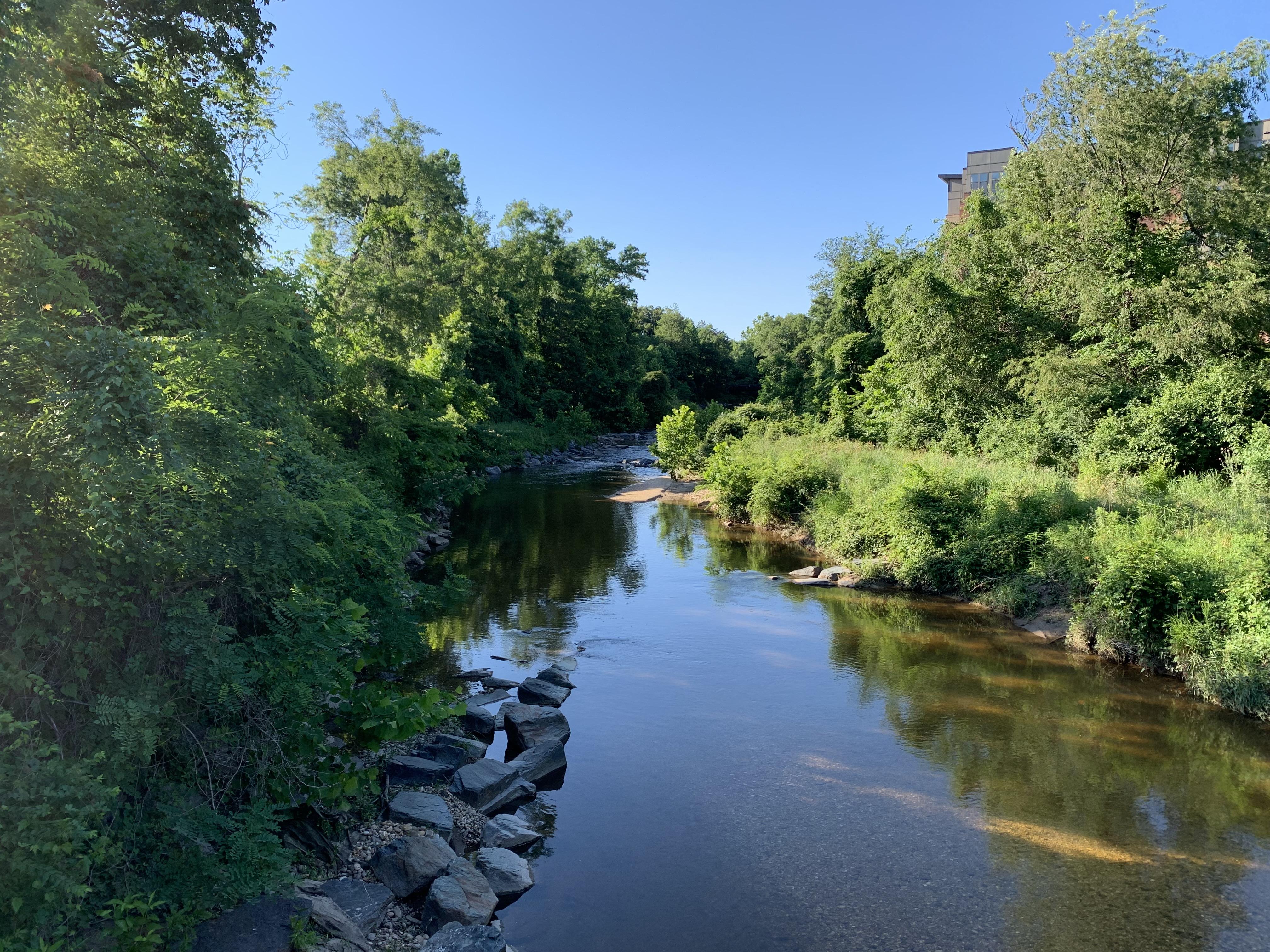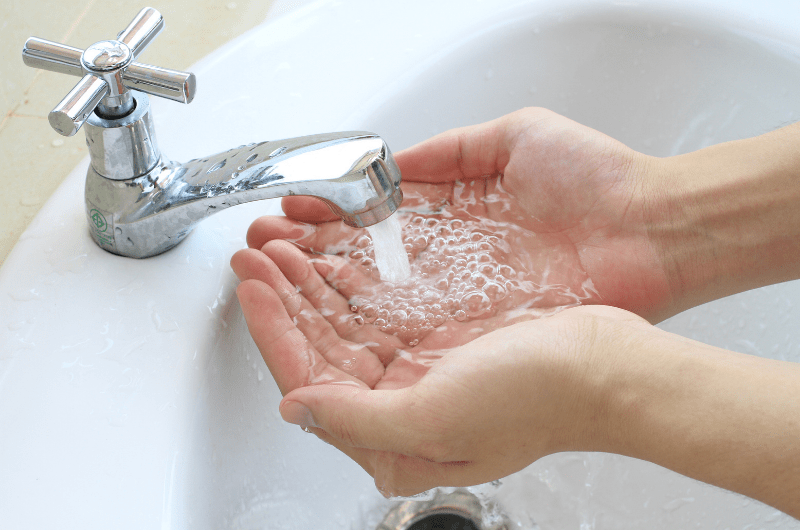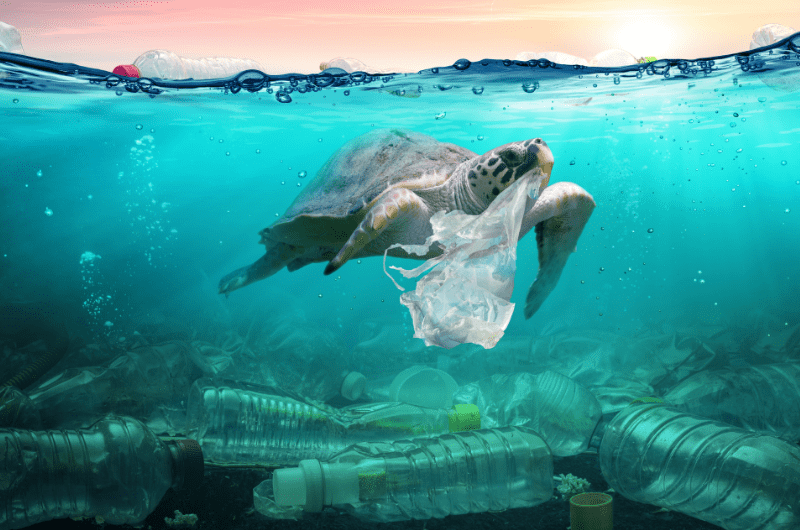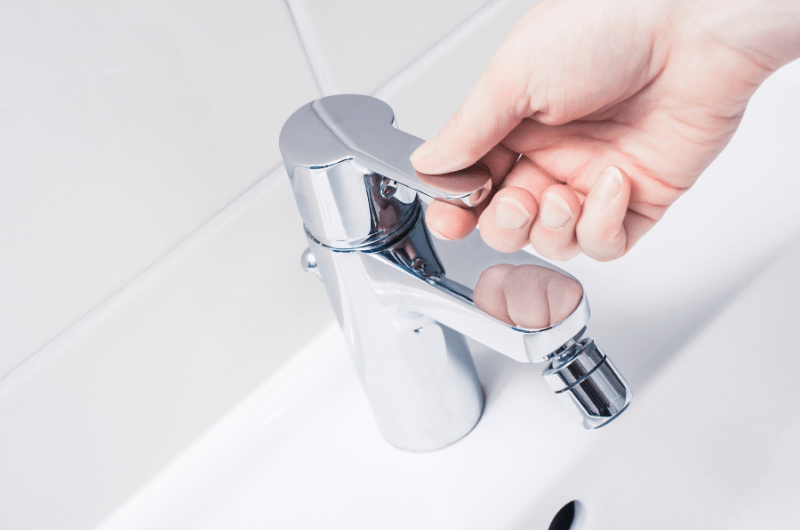
Sustainable Water Systems
Protecting Waterways & Conserving Water
Due to climate change, storms are predicted to worsen in our region. The University of Maryland aims to protect the Chesapeake Bay and local water resources through stormwater management, conservation, and innovative education and research.
Through stormwater management, we can prevent water pollution and nutrient overloading, preserving natural habitats and ecosystems. With rainwater collection, treatment, and reuse, we can reduce flooding and help our regional water systems while also conserving water. All together, UMD can conserve water resources for future generations to come.

Opportunities
UMD's programs to protect and conserve clean water
Green our Campus
Volunteer to plant trees or a garden or clean up litter on campus with the Arboretum in UMD Facilities. Any rainwater that lands on our campus flows downstream into the campus creeks and streams which will flow into local rivers, the bay, and the ocean. By cleaning and greening our watershed, we help protect all the water downstream of us.

Ocean Friendly Campus Initiative
In 2018, Dining Services eliminated millions of disposable plastic items by switching to reusable bags and compostable packaging at dining halls and cafes. Dining Services collaborated with the UMD Sustainable Ocean Alliance, a student group that advocates for oceans. It’s estimated that over 8 million pieces of plastic enter the ocean daily.
Refillable Water Bottle Stations:
Cold filtered water easily pours right into your reusable water bottle at over 100 water bottle filling stations around campus. Join us in reducing waste generated from millions of disposable plastic water bottles!

Conserve Water
Conserving water is more important than ever as the United Nations predicts 30% of the global population will face water scarcity by 2025. For example, turning off the tap for 2 to 3 minutes can save 6 to 12 gallons a day and that adds up across campus- with thousands of students, faculty and staff who have committed to adopt daily sustainable actions. Join the Green Terp, Green Chapter or Green Office program to learn about water conservation, commit sustainable choices, and connect with sustainability networks.
Achievements
How UMD advances sustainable water management
The University of Maryland’s is committed to protect and restore water including:
- Protect the Chesapeake Bay and local waterways from pollution through strong stormwater management and remediation actions.
- Conserve potable (drinkable) water resources while also reducing on-campus flooding by collecting and reusing rainwater.
UMD continuously works to improve water quality in local waterways and watersheds by installing stormwater facilities, by reducing impervious (paved) surfaces on campus, and by performing outreach with local governments, farms, and other entities to encourage stormwater best management practices.
Stormwater Compliance: Strictly regulated by state and federal legislation, UMD’s Department of Environmental Safety, Sustainability, and Risk oversees three stormwater and water quality permits for main campus. The department generally aims to prevent stormwater pollution, partnering with UMD’s Facilities Management, the Maryland Department of Natural Resources, and Maryland Department of the Environment to protect the region’s waterways.
Stormwater Facilities: UMD’s Facilities Management designs and implements projects to mitigate the impact of new development -- for example, buildings and new paved areas -- on our watershed and local waterways. When areas are paved over, water flows away quickly, allowing it to absorb into the ecosystem. This causes erosion, flash flooding, nutrient overloading in water systems, and generally murky, polluted waters. The campus has invested in many projects that reduce water consumption and manage stormwater to prevent watershed pollution:
Water Conservation: UMD is one of the largest consumers of potable water in the State, so campus water conservation is essential to reduce UMD’s utility costs and minimize stress on our regional infrastructure. By adopting water-efficient operations, appliances, and equipment, departments across campus are working to reduce their potable water consumption. The campus has invested in efficient updates such as low-flow toilets, showers, faucets, and moisture sensors on irrigated fields. These efforts have reduced water consumption over the last decade compared to growth in our campus population and buildings.
Water Workgroup: In 2014, the University Sustainability Council approved the Sustainable Water Use and Watershed Report. This report included several recommendations to reduce consumption of potable water and improve stormwater management at the university. A new report is expected to release before Spring 2022.
Related Academic and Research Programs:
- Maryland Water Resources Research Center
- UMD Environmental Finance Center
- University of Maryland Center for Environmental Science
- Department of Civil and Environmental Engineering
- AGNR Strategic Initiative: Ensure a Clean and Healthy Chesapeake Bay
Sustainable Water Stories:
Restoration of Campus Creek
UMD Collaborates with the Maryland Department of Natural Resources to Revitalize the Campus Creek
Amid National Infrastructure Debate, a Failing Grade for Schools
UMD Researcher Urges Fixing Toxic Conditions and Crumbling Buildings to Safeguard Children, Strengthen Communities
UMD Extension Awarded Grant to Help Aquaculture Businesses
Specialists to Develop a New Online Business Planning Tool Using NOAA Grant
Biowall Designs Break Down Divides
Architecture Studio Course Teaches Students Unity of Built Environment and Nature
Clearing Up the Runoff
New Smart Sensors to Provide Real-Time Picture of Campus Stormwater
How Safer Winter Streets Endanger Water Quality, Human Health
UMD-led Study Warns Cascading Effects of Salts in Environment Require Coordinated Action